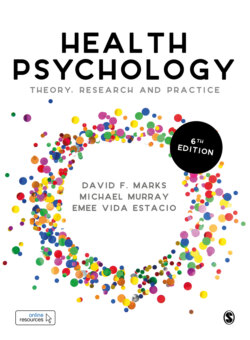Читать книгу Health Psychology - Michael Murray - Страница 16
На сайте Литреса книга снята с продажи.
What Do We Mean by ‘Health’?
ОглавлениеIt seems logical – although few textbooks do it – to discuss what is meant by the term ‘health’ in a book about health psychology. Otherwise, how do we understand the subject? It seems slightly bizarre that few textbooks ever consider it. We must never take the meaning of ‘health’ for granted.
Ancient links exist between the concepts of ‘health’, ‘wholeness’, ‘holiness’, ‘hygiene’, ‘cleanliness’, ‘goodness’, ‘godliness’, ‘sanitary’, ‘sanity’ and ‘saintliness’, as in: ‘Wash you, make you clean; put away the evil of your doings from before mine eyes; cease to do evil’ (Isaiah, 1:16, King James Bible) and: ‘O you who believe! when you rise up to prayer, wash your faces and your hands’ (Quran). The concept of health as wholeness existed in ancient China and classical Greece where health was seen as a state of ‘harmony’, ‘balance’, ‘order’ or ‘equilibrium’ with nature. Related ideas are found in many healing systems today. On the other hand, there are traditional associations between concepts of ‘disease’, ‘disorder’, ‘disintegration’, ‘illness’, ‘crankiness’ (or ‘krankheit’ in German), ‘uncleanness’, ‘insanity’, ‘chaos’ and ‘evil’.
Galen (ce 129–200), the early Roman physician, followed the Hippocratic tradition with hygieia (health) or euexia (soundness) as a balance between the four bodily humours of black bile, yellow bile, phlegm and blood. Galen believed that the body’s ‘constitution’, ‘temperament’ or ‘state’ could be put out of equilibrium by excessive heat, cold, dryness or wetness. Such imbalances might be caused by fatigue, insomnia, distress, anxiety, or by food residues resulting from eating the wrong quantity or quality of food. Human moods were viewed as a consequence of imbalances in one of the four bodily fluids. Imbalances of humour corresponded to particular temperaments (blood–sanguine, black bile–melancholic, yellow bile–choleric, and phlegm–phlegmatic). The theory was also related to the four elements: earth, fire, water and air (Table 1.1).
In the winter, when it is chilly and wet, people might worry about catching a cold, caused by a build-up of phlegm. In summer, when a person is hot and sweaty, they may worry about not drinking enough water or they could otherwise become ‘tetchy’ or ‘hot and bothered’ (bad tempered). It is remarkable that some common beliefs today are descendants of early Greek and Roman theories of medicine from 2,000-plus years ago. It is significant that the concept of balance/equilibrium and the idea that a basic bodily process exists to restore balance (homeostasis) are as much core issues in Science today as in Classical times.
Table 1.1
Universal interest in health is fuelled by a continuous torrent of content in the media about health and medicine, especially concerning the ‘dread’ diseases. In 1946 the World Health Organization (WHO) defined health as: ‘the state of complete physical, social and spiritual well-being, not simply the absence of illness’. It is highly doubtful whether ‘complete physical, social and spiritual well-being’ can ever be reached by anyone. Apart from this idealism, the WHO definition overlooks the psychological, cultural and economic aspects of health. Psychological processes, the main subject of this book, are a key factor in health and are embedded in a social context. For this reason, the term ‘psychosocial’ is often used to describe human behaviour and experience as an influence on well-being. Social inequalities and poverty are also strongly associated with health outcomes and warrant explicit inclusion in any definition of health. With these thoughts in mind, we define health in the light of five key elements (Box 1.1).
BOX 1.1 Definition of health
Health is a state of well-being with satisfaction of physical, cultural, psychosocial, economic and spiritual needs, not simply the absence of illness.
